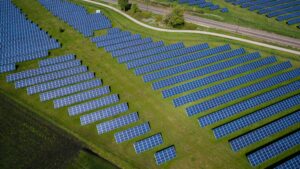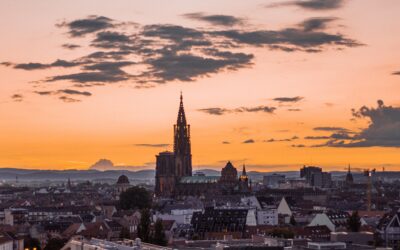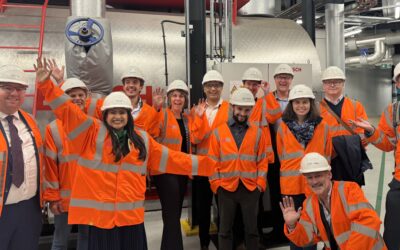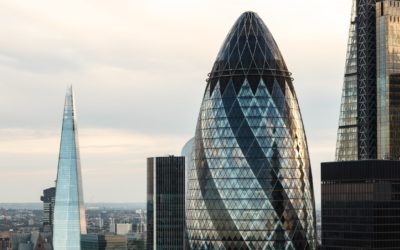Euroheat & Power Webinar: Renewable heat versus energy crisis - a French way • Engie accelerates in renewable energies • Le Havre Metropolis and Total Energies join forces to save energy • Read more about the developments in sustainable heating and cooling in this month's news update from France

Euroheat & Power organised on the 16th of February a webinar, Renewable heat versus energy crisis – a French way, together with the support of FEDENE, AMORCE, and NEWHEAT with over 200 participants. The opportunities for creating new district heating projects in France using renewable energy were the main topic of debate. This webinar was based on a new report from Carbone4 on renewable heat, and it also included highlights of recent market developments from FEDENE and AMORCE.
If you missed the webinar, you can find the recording on youtube, and the presentation can be found here.
The SHC team hope that the inspirational delegation programme and discussions will contribute to great collaborations throughout the year.
Boosted by soaring gas prices in 2022, the French energy company plans to double its investments in solar and wind power compared to the previous three years, to invest at least 13 billion euros by 2025. By 2030, the share of renewables in its production capacity will be the majority. Engie also wants to develop rapidly in battery storage.
During the presentation of Engie’s annual results 2022, marked by a surge in its turnover but also by heavy charges, the energy company announced to double its investments in renewable energies. The electricity and gas supplier announced a 62% increase in revenue in 2022, reaching 93.9 billion euros. Engie’s energy markets division thus generated an additional €2 billion in revenues. Thermal energy – electricity production from gas – jumped by 49.4%, while renewable energies were up 36.6%.
But the group’s net profit – which measures the company’s profitability – has been cut by 95%. It fell to 200 million euros, compared with 3.7 billion last year. Among the charges weighing on this profit, the group deplores 2.8 billion in losses in value due to the future dismantling of its Belgian nuclear power plants, and one billion in lost credit in the Nord Stream 2 gas pipeline, which was never opened following the war in Ukraine.
Further, this acceleration is the result of a broad reorganization, presented in 2021 and materialized by the sale of its multi-services activity Equans to Bouygues for around 7 billion euros, with the aim of refocusing the group more in decarbonized energies and infrastructure. Engie is now embarking on the second stage of its strategic plan and accelerating its growth in the energy transition. They aim to achieve annual growth of 4 gigawatts (GW) of installed renewable capacity worldwide between 2022 and 2025 as well as 6 GW between 2026 and 2030, to reach 50 GW of installed capacity in 2025 and 80 GW in 2030.
Read more in article by La Tribune
Read more in article by Le Parisien
Le Havre Seine Métropole (Normandie) has launched a major project to decarbonise and extend the Le Havre Sud heating network with the aim of connecting the equivalent of 37,000 homes by 2025 at the latest. With a length of 60 km and 300 GWh of heat distributed, the network and the two production facilities will prevent the emission of 47,000 tons of CO2 per year thanks to heat of 80% renewable origin (biomass) or recovered (industrial waste heat). The project represents a total investment of €170 million.
TotalEnergies and the Le Havre Seine Métropole Urban Community have now joined forces to supply heat to the heat network of Le Havre Sud. The waste heat recovered from TotalEnergies’ Normandy Platform facilities will replace the heat currently produced by burning gas. It will supply the equivalent of 12,000 homes in Le Havre and avoid the emission of 16,000 tons of CO2 per year.
The TotalEnergies platform in Normandy is one of six integrated platforms of the Refining and Chemicals branch of TotalEnergies worldwide and it brings together a refinery, a petrochemicals site and a polymers manufacturing site. The equivalent of 80 GWh of heat produced by the platform’s industrial processes will be captured and recovered, thereby actively participating in the decarbonisation and energy savings of the region. The Normandy Platform is multiplying its efforts to achieve carbon neutrality by 2050 with several projects being carried out, deployed, or studied currently: sustainable air fuels, electrification of the vehicle fleet, solar farm, low-carbon hydrogen thanks to a CO2 capture and storage project, etc.
By 2025, the Le Havre Seine Métropole Urban Community plans to extend its heating network from 12 to 60 km of pipes, in order to significantly increase the number of beneficiaries having access to a cleaner and cheaper energy. The project involves connecting TotalEnergies’ Normandy platform to the network operated by ResOcéane (Dalkia/CRAM consortium). This network will use 80% of heat from renewable sources or recovered industrial heat.
Read more at TotalEnergies webpage
Read more in article by Ouest France
To stay updated on news for sustainable heating and cooling, follow us on Twitter and LinkedIn, and subscribe to our Newsletter.
Sweden is at the forefront of decentralised heat networks technology. Our aim for “Sustainable Heating & Cooling by Sweden” is to facilitate knowledge sharing between British, French and Swedish stakeholders and develop and encourage environmental and economic best practice.
To find out how we can help you and your organisation, please contact our London or Paris-based “SHC” teams. We can introduce you to leading consultants, suppliers of technology and services who will be pleased to share know-how of the development of sustainable heating & cooling solutions.


